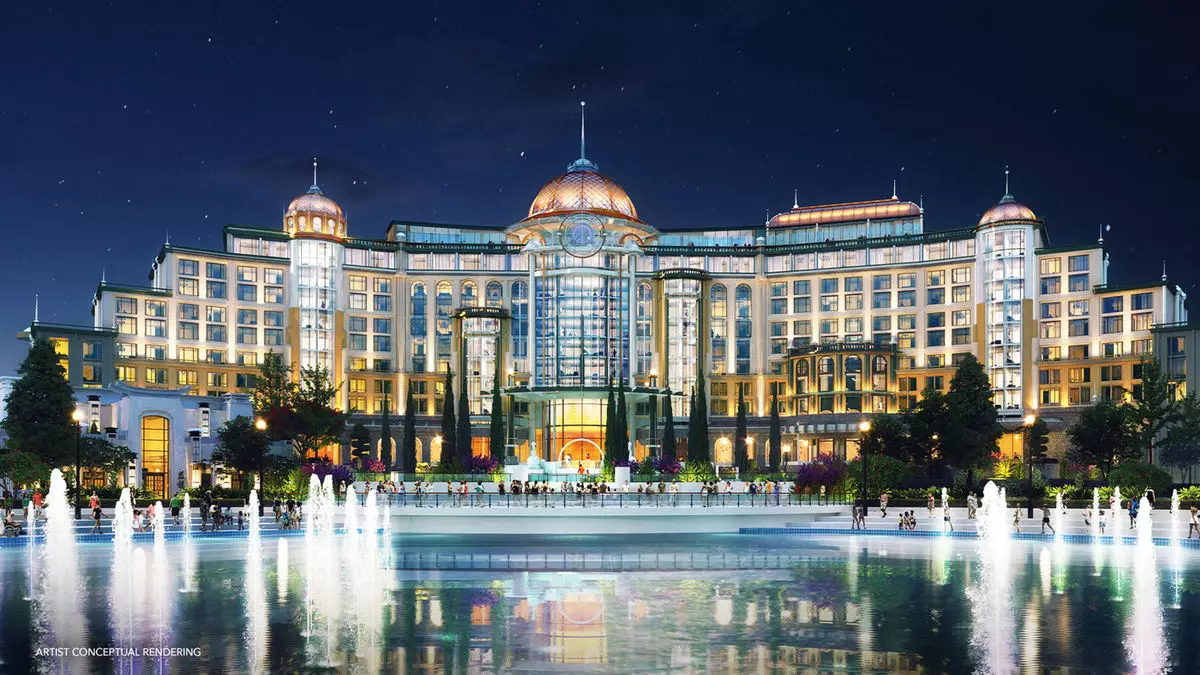Orlando, often synonymous with theme parks and vibrant nightlife, finds itself navigating through a crucial juncture of growth and recalibration in its tourism sector. While attracting a dynamic mix of international visitors and expanding beyond its theme park image, the destination faces challenges as it adapts to post-pandemic travel norms. This article examines the current state of Orlando tourism, the factors influencing its trajectory, and the emerging opportunities that lie ahead.
As Orlando moves through 2023, the overall visitor numbers point towards a notable increase, bolstered mostly by international tourists. With a remarkable 25% growth in international footfall to reach approximately 6.1 million visitors, the city’s global appeal cannot be understated. This upswing contrasts sharply with the slightly softened domestic travel trends that have unfolded over the past year.
Visit Orlando’s CEO, Casandra Matej, highlighted the importance of international tourism in maintaining steady numbers, acknowledging a slight domestic dip. This phenomenon mirrors larger national trends, where travel within the United States saw slower growth compared to the rapid rebound witnessed in 2022. Looking forward, Visit Orlando anticipates modest gains of 1% to 2% in total visitation for 2024, harnessing seasonal draws like Halloween festivities and year-end celebrations as pivotal opportunities.
Hotel Performance: Signs of Normalization
Despite the promising visitor growth, current hotel data suggests a contraction in the Orlando market as it pivots back to pre-pandemic norms. Recent reports indicate a 2.4% decline in hotel occupancy rates and a 0.9% drop in demand through August 2023 compared to the previous year. Additionally, as Average Daily Rates (ADR) presented a negligible rise of 0.1%, the Revenue Per Available Room (RevPAR) noted a more concerning drop of 2.3%. These metrics reflect a transitioning market as Orlando settles into traditional travel patterns.
Moreover, Robert Agrusa, CEO of the Central Florida Hotel & Lodging Association, acknowledged a softer demand among U.S. travelers over the summer months. The allure of international travel and cruise vacations, which revived after prolonged pandemic restrictions, captured a portion of the domestic audience that previously flocked to Orlando’s attractions. Nevertheless, the optimism around the 2025 opening of Universal Orlando Resort’s third theme park, Epic Universe, presents a beacon of potential recovery and growth.
Embracing Diversity: Beyond Theme Parks
In a significant shift from its traditional brand identity, Orlando is actively promoting a broader range of attractions beyond the famed theme parks. Visit Orlando has initiated efforts aiming to raise awareness of ecotourism and cultural experiences available in the region. Activities such as kayaking in serene springs, encountering manatees, and exploring local art and culture are beginning to reshape perceptions of Orlando as merely a family destination laden with amusement parks.
As families increasingly seek a diverse array of experiences, travel advisors like Katie Coleman have noted a shift in client preferences. Many are exploring vacation rentals while reducing the number of days spent at theme parks – indicating a desire for value-oriented experiences. Coleman pointed out that her clients are keen on visits to the Kennedy Space Center, NBA games, or outings to Gatorland, reflecting an eagerness to embrace Orlando’s eclectic offerings beyond its renowned attractions.
As it stands, the evolution of Orlando’s reputation as a destination in the travel market is evident. Agrusa, from the Hotel & Lodging Association, emphasized that with a community history of just 60 to 70 years, there’s still significant potential for growth and development. With Epic Universe set to open next year, the excitement it generates is not just a catalyst for economic growth but also a testament to Orlando’s capacity for ongoing reinvention.
While Orlando tourism encounters challenges reminiscent of the pre-pandemic era, it simultaneously ventures into a new chapter characterized by international growth, evolving visitor preferences, and diversification of experiences. By continuing to redefine its image and leveraging its intrinsic strengths, Orlando stands poised to maintain its appeal to a broader spectrum of travelers in the years to come. With ongoing investment in infrastructure and multifaceted attractions on the horizon, the city will likely see a continuous flow of visitors eager to experience its charm both within and beyond the boundaries of its celebrated theme parks.


Leave a Reply